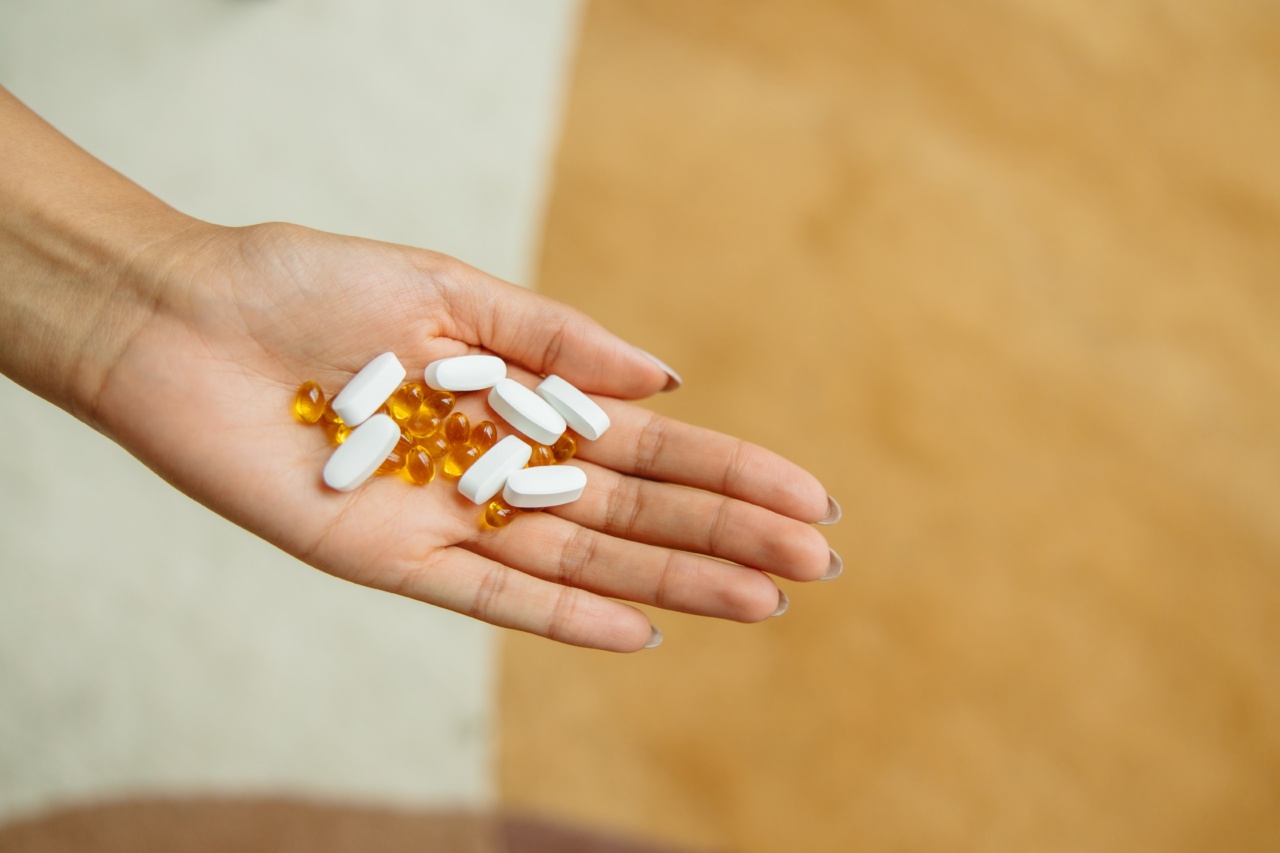Rheumatoid arthritis (RA) is an autoimmune disease that causes inflammation and pain in the joints. It affects about 1.3 million adults in the United States and can cause severe disability if left untreated.
While there are medications available to manage RA symptoms, nutrition can also play a crucial role in alleviating pain and reducing inflammation.
1. Eat More Anti-Inflammatory Foods
Anti-inflammatory foods can help to reduce inflammation and pain associated with RA. Some of the best anti-inflammatory foods include:.
- Fatty fish like salmon, tuna, and sardines
- Leafy greens like spinach, kale, and collards
- Nuts and seeds like almonds, walnuts, and flaxseed
- Colorful fruits and vegetables like berries, cherries, tomatoes, and bell peppers
- Whole grains like brown rice, quinoa, and oats
2. Avoid Foods That Trigger Inflammation
Some foods can trigger an immune response and increase inflammation in the body. To manage RA symptoms, it’s important to avoid these foods:.
- Processed foods like chips, crackers, and cookies
- Sugary drinks like soda and sweet tea
- Red meat and pork
- Fried and fast foods
- Alcohol
3. Get Enough Omega-3 Fatty Acids
Omega-3 fatty acids are essential fats that can help to reduce inflammation and pain in the body. They are found in fatty fish, nuts and seeds, and plant oils.
Aim to eat at least two servings of fatty fish per week or consider taking a high-quality fish oil supplement.
4. Consider Turmeric and Ginger
Turmeric and ginger are two powerful herbs with natural anti-inflammatory properties. You can add them to your meals as spices or take them in supplement form to help manage RA symptoms.
5. Maintain a Healthy Weight
Being overweight can place extra stress on the joints and exacerbate RA symptoms. To manage your weight, aim to eat a balanced diet with plenty of fruits, vegetables, lean proteins, and whole grains.
Avoid fad diets that promote rapid weight loss, as these can be detrimental to your health.
6. Stay Hydrated
Dehydration can lead to joint stiffness and pain, so it’s important to stay hydrated throughout the day. Aim to drink at least eight glasses of water per day, or more if you exercise or live in a hot climate.
7. Talk to Your Doctor
If you’re struggling to manage RA symptoms through diet alone, talk to your doctor about other treatment options. They may recommend prescription medications or refer you to a physical therapist for additional support.
8. Practice Mindful Eating
Mindful eating involves paying attention to your body’s hunger and fullness cues and eating slowly and deliberately. This can help you to make healthier food choices and avoid overeating, which can lead to weight gain and worsen RA symptoms.
9. Experiment with an Elimination Diet
An elimination diet involves temporarily removing certain foods from your diet to see if they are triggering inflammation and exacerbating RA symptoms.
Common allergens like dairy, wheat, and soy are often excluded during this process, as they can be inflammatory for some individuals.
10. Stay Positive
Finally, it’s important to stay positive and maintain a good outlook when managing RA symptoms. Surround yourself with supportive friends and family, and consider joining a support group for individuals with RA.
Practicing stress-reduction techniques like meditation, yoga, or deep breathing can also help to manage the emotional toll of this chronic condition.





























